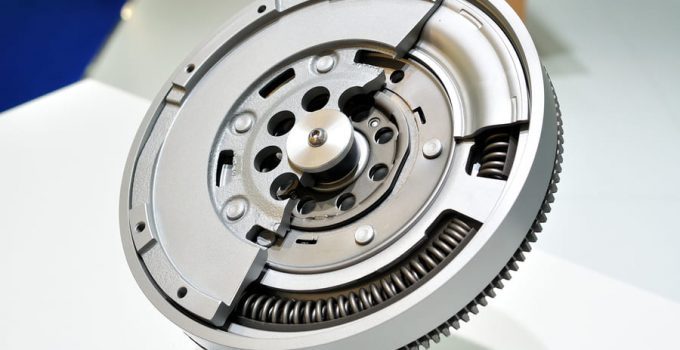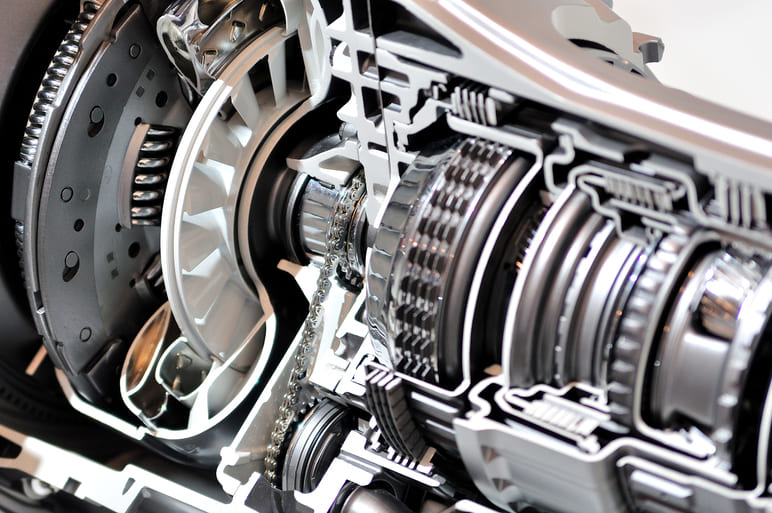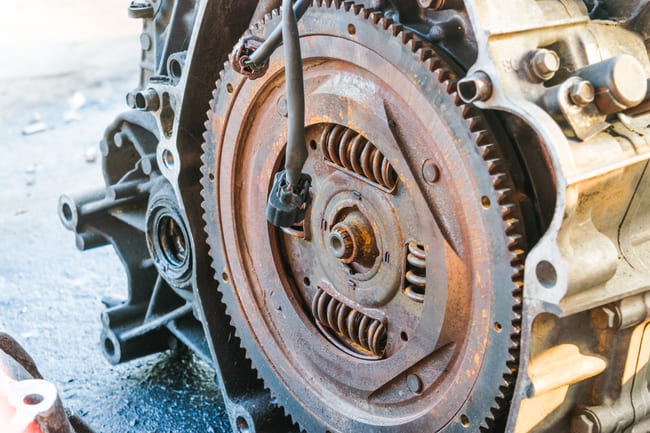
Everyone knows that transmission failures can result in very expensive repairs. But often it is not the transmission itself that causes problems here. Sometimes there are also complications with the dual mass flywheel. The dual-mass flywheel is a component that is designed to keep torsional vibration disturbances away from the engine, the drive train, the transmission and the entire car. In general, the dual-mass flywheel is a very sensitive component because it is exposed to enormous forces and high temperatures. The dual-mass flywheel is therefore also subject to wear and its effects. However, your vehicle cannot continue to be driven with a defective dual-mass flywheel. An inspection in a workshop by professionals should now be your top priority. Let specialists take a look under the bonnet and inspect the gearbox and the dual-mass flywheel. In most cases, the damage can be repaired by simply replacing the smallest individual parts or by simply repairing it. In other cases, the dual-mass flywheel must be completely replaced.
Contents
The advantages of a dual-mass flywheel

The dual mass flywheel has many advantages. On the one hand, the dual-mass flywheel ensures a longer service life for the drive train, and it also reduces torque peaks, which in turn protects the transmission. It ensures that there is no transmission of critical speeds to the vehicle structure, because this could lead to the destruction of the component in particularly bad cases. In addition, the dual-mass flywheel makes it possible for the transmission to run evenly, which means that noise levels are reduced again. In addition, a particularly positive factor here is that less fuel is consumed, since you can also drive your car at low speeds, which would otherwise be more of a risk, since the speeds are simply too low. All in all, the dual-mass flywheel enables vibration decoupling between the transmission and the engine over the entire speed range. A dual-mass flywheel can have all of these positive effects on a passenger car, even though it is relatively modest in size and weight.
What are the signs of a defective dual-mass flywheel?
Luckily, you will quickly notice clear signs of defects in the DMF (dual mass flywheel). If you notice a rattling noise coming from the gearbox, or the steering wheel vibrates significantly when stationary or when starting off, or your vehicle jerks overall when idling, then you have direct signs that something could be wrong with your DMF . However, to be on the safe side, you should visit a workshop directly. We strongly advise against DIY diagnostics or DIY repairs, as these jobs require certain knowledge and special equipment. So play it safe and contact competent specialists. These will first clarify whether it is really a defect in the DMF by excluding other causes of malfunctions and only then will an intensive check be carried out on the component in question. The workshop has to completely remove the transmission for this intensive test. If the experts now find cracks on the component due to heat, as well as lubricating grease that is escaping, or a worn friction surface, then these are clear signs of excessive overloading. Now you have to keep a close eye on the clearance angle. This is the angle through which the two masses of the disc can be rotated. When said angle has been measured, the exact degree of wear of the dual mass flywheel can be diagnosed.
What are the causes of a defect in the ZMS?

The question now remains as to how the DMF is defective and needs to be replaced. Overall, a DMF has a service life of around 180,000 to 200,000 kilometers. It is therefore a wear part that will have to be replaced sooner or later anyway. However, there are certain factors that further promote the wear of this component. Most often these factors have to do with incorrect loading of the clutch or the engine. For example, if you like to engage the clutch in a jerky manner, this can lead to faster wear of the dual-mass flywheel. But the popular chip tuning, which is intended to increase the performance of the engine, can also have negative effects on the DMF. You should also avoid driving with heavy trailers relatively often, which also puts an enormous strain on the DMF.
For what other reasons does the DMF need to be replaced?
There are many causes that would justify an exchange. Among other things, an overload may have occurred due to the heat, but a defective sprocket and a broken component are also damages that can only be remedied by replacing them. What the specialists here will pay attention to: a DMF will never be replaced with a one-piece flywheel, as this is strictly forbidden.
What are the costs of repairing a DMF can get to me?
The DMF is a fairly fragile component, even when it is subjected to great forces. In addition, many parts have to be dismantled in order to be able to reach the DMF at all. In most cases, as mentioned above, the entire gearbox must first be removed before the DMF can even be reached. In addition, the complete clutch is also gladly replaced with this exchange. Since this work accumulates many hours of work and the components themselves are not cheap, the bill for this replacement work can quickly run into the four-digit range. The DMF itself does not necessarily have to be very expensive. It depends on the power and the torque that the DMF has to transmit. In terms of working hours, you can assume that it will take specialists about five hours to successfully complete the replacement work.
The conclusion and a tip from CarTipsandmore
The DMF is a wearing part, which means that it will have to be replaced sooner or later. However, if you make sure not to put unnecessary strain on your vehicle's clutch, you will also protect the DMF and can therefore delay a necessary replacement. However, if the first signs of a defect in the DMF appear, then you should not hesitate for long. Make an appointment at a workshop and have the component inspected by professionals. A tip from CarTipsandmore: do without a DIY inspection and DIY repairs. Ultimately, this will cost you more money than going to competent professionals
